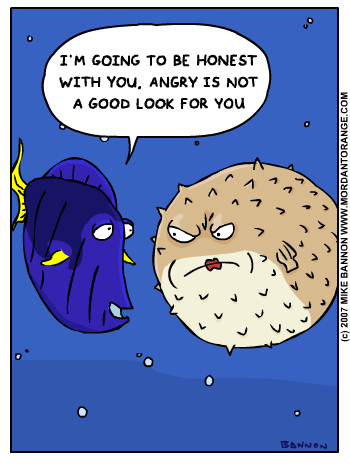
Emotional reasoning is one of the more destructive cognitive distortions because it is used when we are in a highly emotional state, and we all know that being in a highly emotional state is not the best place to be when we're judging or gauging our thoughts and actions.
"I feel so strongly that I was just wronged that it must be true! Otherwise I wouldn't feel so strongly. My body is telling me something." That's like having a gut feeling about something... ON OVERLOAD! Fortunately, there are steps we can take when we find ourselves in this process. These steps are based on Linda Hoggan and Carmen Kane's article in Parenting, called the RIGAAR method.
People with personality disorders tend to find themselves doing a lot of emotional reasoning, but we all can succumb to it if we have highly emotional experiences and lack the coping skills necessary to overcome the emotions in the moment.
Here is a video about emotional reasoning. It contains information about personality disorders as well.

Have you ever thought to yourself, "I shouldn't yell so much?" Well, when we say things like, "I should," or "I must," we set ourselves up for judgment. What the word 'should' means is, "A good person wouldn't yell." Sure, by your definition, a good person wouldn't yell. So, when we do yell again, that must mean we're a bad person then, right?
That's the problem with the word should. It puts a lot of pressure on us to change things that are very hard to change, and it makes us judge ourselves for failing.
When we say, "Things must go this way," we're putting our own needs ahead of reality. What law says that we must be the best basketball player on the team? What law says we must do very well on the test? Sure, those are things to strive towards, but if they fail, and since they were "musts," then our life is over and there is nothing more we can do. So instead of saying "I must be this way," try saying something less absolute. "It would be awesome if this happened. It would be beneficial to be this way, but I will still be breathing if it doesn't turn out.
| Click on a link to learn more |
|---|
| All or Nothing & Overgeneralizing |
| Mental Filter & Disqualifying the Positive |
| Jumping to Conclusions & Magnification / Minimization |
| Labeling & Personalization |
| Home | Links | Talk to us |
|---|
This site is for educational purposes only and is not a substitute for professional advice. If you believe you need more help, please seek counseling with a qualified professional counselor.